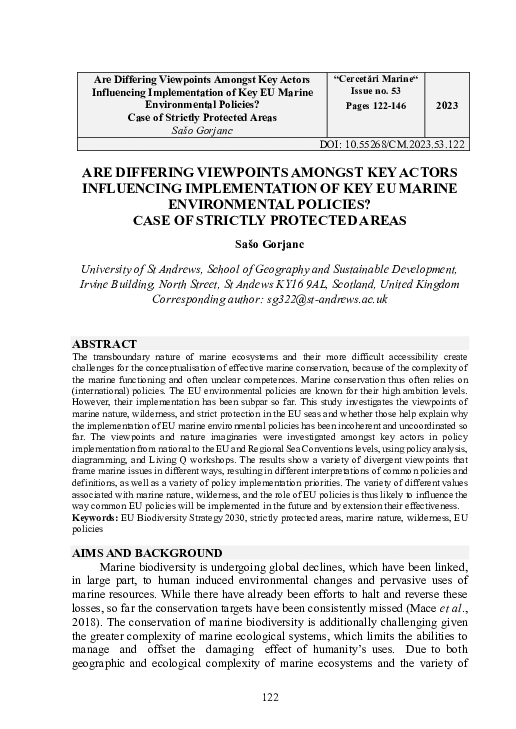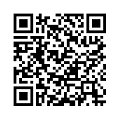Are Differing Viewpoints Amongst Key Actors Influencing Implementation of Key EU Marine Environmental Policies? Case of Strictly Protected Areas
DOI:
https://doi.org/10.55268/CM.2023.53.122Keywords:
EU Biodiversity Strategy 2030, strictly protected areas, marine nature, wilderness, EU policiesAbstract
The transboundary nature of marine ecosystems and their more difficult accessibility create challenges for the conceptualisation of effective marine conservation, because of the complexity of the marine functioning and often unclear competences. Marine conservation thus often relies on (international) policies. The EU environmental policies are known for their high ambition levels. However, their implementation has been subpar so far. This study investigates the viewpoints of marine nature, wilderness, and strict protection in the EU seas and whether those help explain why the implementation of EU marine environmental policies has been incoherent and uncoordinated so far. The viewpoints and nature imaginaries were investigated amongst key actors in policy implementation from national to the EU and Regional Sea Conventions levels, using policy analysis, diagramming, and Living Q workshops. The results show a variety of divergent viewpoints that frame marine issues in different ways, resulting in different interpretations of common policies and definitions, as well as a variety of policy implementation priorities. The variety of different values associated with marine nature, wilderness, and the role of EU policies is thus likely to influence the way common EU policies will be implemented in the future and by extension their effectiveness.

Downloads
Published
How to Cite
Issue
Section
License

This work is licensed under a Creative Commons Attribution-NonCommercial-ShareAlike 4.0 International License.
This is an open access journal, which means that all content is freely available without charge to the user or his/her institution. Users are allowed to read, download, copy, distribute, print, search, or link to the full texts of the articles, or use them for any other lawful purpose, without asking prior permission from the publisher or the author. This is in accordance with the BOAI definition of open access.






